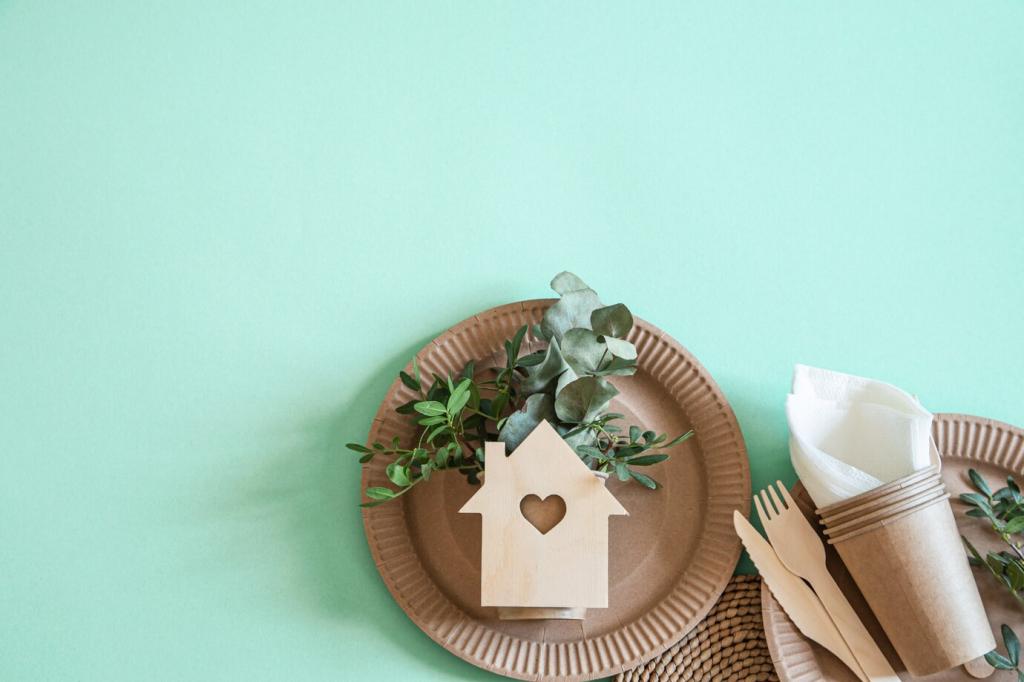Sustainable Flooring Solutions for Modern Homes
Discover how eco-friendly flooring options are transforming contemporary living spaces. Sustainable flooring solutions not only enhance the aesthetics of modern homes but also contribute to environmental preservation and healthier indoor environments. As homeowners become increasingly conscious of their ecological footprint, innovative materials and responsible manufacturing processes are driving the evolution of flooring design. Explore the principles, benefits, and leading choices for sustainable flooring that align with the needs of today’s homes while supporting a greener future.


Health and Environmental Benefits
Improved Indoor Air Quality
Traditional flooring materials sometimes emit volatile organic compounds (VOCs) and other pollutants, negatively impacting indoor air quality. In contrast, sustainable flooring options are often manufactured using natural adhesives and finishes with minimal chemical content, leading to healthier indoor environments. Materials like bamboo, cork, and natural linoleum are hypoallergenic and resist dust and allergens, making them ideal choices for allergy sufferers and families with young children. By selecting low-emission flooring, homeowners can ensure their living spaces support overall well-being and comfort without compromising on design.
Reduced Carbon Footprint
Choosing sustainable flooring can significantly lower a home’s overall carbon footprint. Eco-conscious materials require less energy and fewer resources to produce and transport, reducing greenhouse gas emissions at every stage, from sourcing to installation. Additionally, many sustainable flooring options are biodegradable or recyclable at the end of their lifespan, minimizing landfill waste. These advantages, combined with advances in manufacturing and supply chain efficiency, help homeowners play a vital role in combating climate change through the choices they make underfoot.
Supporting Ethical Production
Responsible sourcing and production are central to truly sustainable flooring. Look for flooring options certified by credible organizations, such as the Forest Stewardship Council (FSC), that ensure materials are harvested in ways that protect ecosystems and respect local communities. Ethical sourcing not only supports fair labor practices but also ensures that flooring choices do not contribute to deforestation or environmental degradation. By prioritizing ethical production, homeowners can take pride in flooring that is as socially responsible as it is visually appealing.
Innovative Design and Versatility
Customization and Aesthetic Appeal
Sustainable flooring no longer means compromising on style. Manufacturers are continuously developing new techniques to infuse eco-friendly materials with stunning visual interest. Bamboo and reclaimed wood can be finished in a spectrum of tones, from subtle neutrals to bold hues. Cork tiles and linoleum provide opportunities for colorful patterns and creative layouts. Modern printing technologies even allow stone and wood looks to be achieved with recycled materials. These advancements mean homeowners have access to eco-friendly flooring that complements their unique tastes and elevates the interior design of any room.
Durability for Modern Living
Practicality is central to flooring in busy homes, and sustainable options rise to the challenge. Many eco-friendly materials, including bamboo and cork, naturally resist scratches and wear, making them ideal for high-traffic areas. Advanced manufacturing processes have further enhanced their durability, ensuring that today’s sustainable floors are built to withstand the demands of everyday use. Properly maintained, these floors offer impressive longevity, which reduces the need for frequent replacements and further conserves resources over time, aligning performance with sustainability.
Seamless Integration with Smart Home Systems
Flooring options with sustainable credentials are increasingly compatible with modern technologies, from underfloor heating to integrated soundproofing. Bamboo, cork, and certain recycled materials can be engineered to accommodate radiant heating, optimizing energy efficiency while maintaining comfort. Their resilience and thickness also make them suitable substrates for advanced insulation and smart sensor systems that monitor humidity or ambient temperature. As modern homes become more connected and energy-conscious, sustainable flooring supports both the functional and technological evolution of living spaces.
